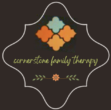Finding clarity in life can be a challenging task, but it is an essential step in achieving mental and emotional well-being. Clarity allows us to understand our thoughts, feelings, and motivations, and make better decisions. As a professional therapist at Cornerstone Family Therapy in Boise, I understand the importance of finding clarity in one’s life. In this blog post, I will be sharing five strategies that can help you find clarity in your life.

These strategies include mindfulness and meditation, journaling and self-reflection, therapy and counseling, nature and exercise, and rest and self-care. By implementing these strategies, you can gain a deeper understanding of yourself and your experiences, and move forward in your life with more confidence and purpose.
Mindfulness and Meditation
Definition and explanation of mindfulness and meditation
Mindfulness and meditation are practices that involve paying attention to the present moment in a non-judgmental way. Mindfulness is the ability to be aware of one’s thoughts, feelings, and surroundings in the present moment, while meditation is the practice of focusing the mind to achieve a state of mindfulness.
Mindfulness and meditation have been shown to have numerous benefits for mental and physical health. They can help to reduce stress, improve focus and concentration, and increase feelings of well-being.
How mindfulness and meditation can help us find clarity
Mindfulness and meditation can help us to find clarity by helping us to become more aware of our thoughts and emotions. When we are more aware of our thoughts and emotions, we are better able to understand and process them. This can lead to a deeper understanding of ourselves and our experiences, which can in turn help us to make more informed decisions and navigate the challenges of life with more confidence and purpose.

Mindfulness and meditation also help to reduce stress and anxiety, which can cloud our thinking and make it difficult to see things clearly. By reducing stress and anxiety, mindfulness and meditation can help to clear our minds and improve our ability to focus and concentrate.
Tips for incorporating mindfulness and meditation into daily life
Start small: Mindfulness and meditation can be practiced for as little as a few minutes a day. Start with a few minutes each day and gradually increase the amount of time you spend practicing.
Find a quiet place: Find a quiet place where you can sit or lie down and focus on your breath.
Focus on your breath: When you begin your mindfulness and meditation practice, focus on your breath. This can help to anchor your mind in the present moment.
Use guided meditations: There are many guided meditations available online or through apps that can help you to get started with mindfulness and meditation.
Incorporate mindfulness into your daily routine: Mindfulness can be practiced anytime and anywhere. Incorporate mindfulness into your daily routine by paying attention to your thoughts, feelings and surroundings throughout the day.
Be consistent: Make mindfulness and meditation a regular part of your daily routine. The more consistent you are, the more benefits you will experience.
Journaling and self-reflection
Journaling and self-reflection are another effective strategy for finding clarity in life. Journaling allows us to record our thoughts and feelings, and see patterns and connections that we might not otherwise notice. Self-reflection is the process of examining our thoughts and feelings, and understanding how they relate to our actions and experiences. By regularly journaling and reflecting on our experiences, we can gain a deeper understanding of ourselves and our motivations.

To make the most of journaling and self-reflection, it’s important to set aside dedicated time for these activities. It can be helpful to set a specific time each day or week to journal and reflect. Additionally, it’s important to approach these activities with an open and curious mindset, rather than a judgmental one.
Here are some tips for effective journaling and self-reflection:
- Be honest and authentic in your writing
- Be specific about your thoughts and feelings
- Write about your successes and failures
- Reflect on what you have learned from your experiences
- Ask yourself questions that will help you gain a deeper understanding of yourself
Examples of prompts for self-reflection:
- What are my values and how do they influence my decisions?
- What are my goals and how can I work towards achieving them?
- What are my strengths and weaknesses, and how can I use them to improve my life?
- How can I take better care of myself, both physically and emotionally?
By incorporating journaling and self-reflection into your daily routine, you can gain a deeper understanding of yourself, and find clarity in your life.
Therapy and Counseling
Explanation of how therapy and counseling can help us find clarity
Therapy and counseling can help us to find clarity by providing a safe and supportive environment where we can explore our thoughts, feelings, and experiences. A therapist or counselor can act as a guide and support system as we work through difficult emotions and situations. They can also help us to identify patterns and make connections that we might not otherwise see.

Types of therapy and counseling that can be beneficial
Cognitive-behavioral therapy (CBT) – This type of therapy focuses on identifying and changing negative thought patterns and behaviors that contribute to mental health issues.
Trauma-focused therapy – This type of therapy is specifically designed for individuals who have experienced trauma and helps them to process and heal from their traumatic experiences.
Family therapy – This type of therapy focuses on improving communication and relationships within families.
Mindfulness-based therapy – This type of therapy incorporates mindfulness and meditation techniques to help individuals become more aware of their thoughts and emotions.
EMDR therapy – This type of therapy is specifically designed for individuals who have experienced trauma and uses eye movements to help process traumatic memories.
How to find a therapist or counselor
Research different types of therapy and find one that aligns with your needs
Look for therapists who have experience and credentials in the type of therapy you are interested in
Look for therapist who have a good reputation
Ask for referrals from friends, family, or your primary care physician
Look for online directories or websites that list local therapists
Search for online therapy options if that works for you
Explanation of online therapy and how it could be beneficial for some people
Online therapy, also known as teletherapy, is a way of receiving therapy through video conferencing or phone calls. It can be beneficial for people who have difficulty accessing therapy in person, such as those who live in rural areas or have mobility issues. It can also be a convenient option for individuals who have busy schedules or prefer the privacy and comfort of their own home.
How to choose the right therapist for you and what to expect from therapy sessions
When choosing a therapist, it’s important to find someone who you feel comfortable with and trust. You should also consider their qualifications and experience, as well as their approach to therapy.
During therapy sessions, you can expect to discuss your thoughts, feelings, and experiences in a confidential and non-judgmental environment. Your therapist will work with you to identify patterns and make connections, and will help you to develop strategies for coping with difficult emotions and situations.
Cost and insurance coverage for therapy and counseling
The cost of therapy and counseling can vary depending on the therapist’s qualifications and experience, as well as where you live. Many therapists offer sliding scale fees based on a person’s income. Many insurance plans also cover some or all of the cost of therapy and counseling, but it’s important to check with your insurance provider to see what is covered under your specific plan. It’s also worth noting that some therapists may not accept insurance, so it’s important to ask about payment options before starting therapy.
Additionally, there are also many low-cost and sliding scale therapy options available such as community clinics, university counseling centers and non-profit mental health organizations. It might take some research and extra effort to find such options but it can be worth it for those who are struggling with the cost.
It’s also important to remember that the cost of therapy should not be a deterrent for seeking help. The benefits of therapy and counseling, such as increased clarity and improved mental health, can have a significant positive impact on one’s life. There are many resources and options available for those who need it, and it’s important to seek out the support and guidance that is best for you and your specific needs.
Rest and self-care
Rest and self-care are essential components of finding clarity in life. Our bodies and minds need time to rest and recharge in order to function at their best. When we neglect our self-care, we can become burnt out and overwhelmed, making it difficult to find clarity.
Self-care can take many forms, and what works for one person may not work for another. Some examples include:
- Getting enough sleep each night
- Eating a healthy and balanced diet
- Regularly practicing mindfulness and meditation
- Engaging in hobbies or activities that bring joy and relaxation
- Spending quality time with friends and loved ones
- Setting boundaries and saying “no” when necessary
- Seeking professional help when needed
It is important to create a self-care routine that is personalized to your needs, and to make it a priority in your daily life. When you take care of yourself, you can better take care of others, and find the clarity you need to navigate the challenges of life.
In conclusion, finding clarity in life can be a challenging task, but it is an essential step in achieving mental and emotional well-being. By incorporating mindfulness and meditation, journaling and self-reflection, therapy and counseling, nature and exercise, and rest and self-care into your daily routine, you can gain a deeper understanding of yourself and your experiences, and move forward in your life with more confidence and purpose. Remember that finding clarity is a continuous process and not a one-time event, so keep working on it with patience and consistency.
Conclusion
In conclusion, finding clarity in life can be a challenging task, but it is an essential step in achieving mental and emotional well-being. By incorporating mindfulness and meditation, journaling and self-reflection, therapy and counseling, nature and exercise, and rest and self-care into your daily routine, you can gain a deeper understanding of yourself and your experiences, and move forward in your life with more confidence and purpose. Remember that finding clarity is a continuous process and not a one-time event, so keep working on it with patience and consistency.
Additionally, it’s important to keep in mind that everyone’s journey to finding clarity is unique, and what works for one person may not work for another. It’s important to keep an open mind and be willing to try new things in order to find what works best for you.
At Cornerstone Family Therapy, we understand the importance of finding clarity in life. Our team of experienced therapists and counselors are here to support and guide you on your journey. Whether you’re looking for help with a specific issue or are just seeking a deeper understanding of yourself and your experiences, we’re here to help. Contact us today to schedule a consultation and take the first step towards finding clarity in your life.
